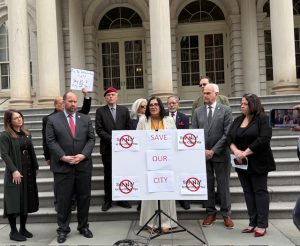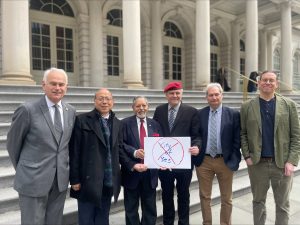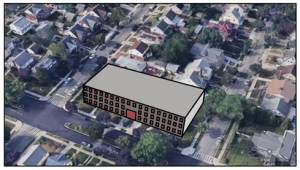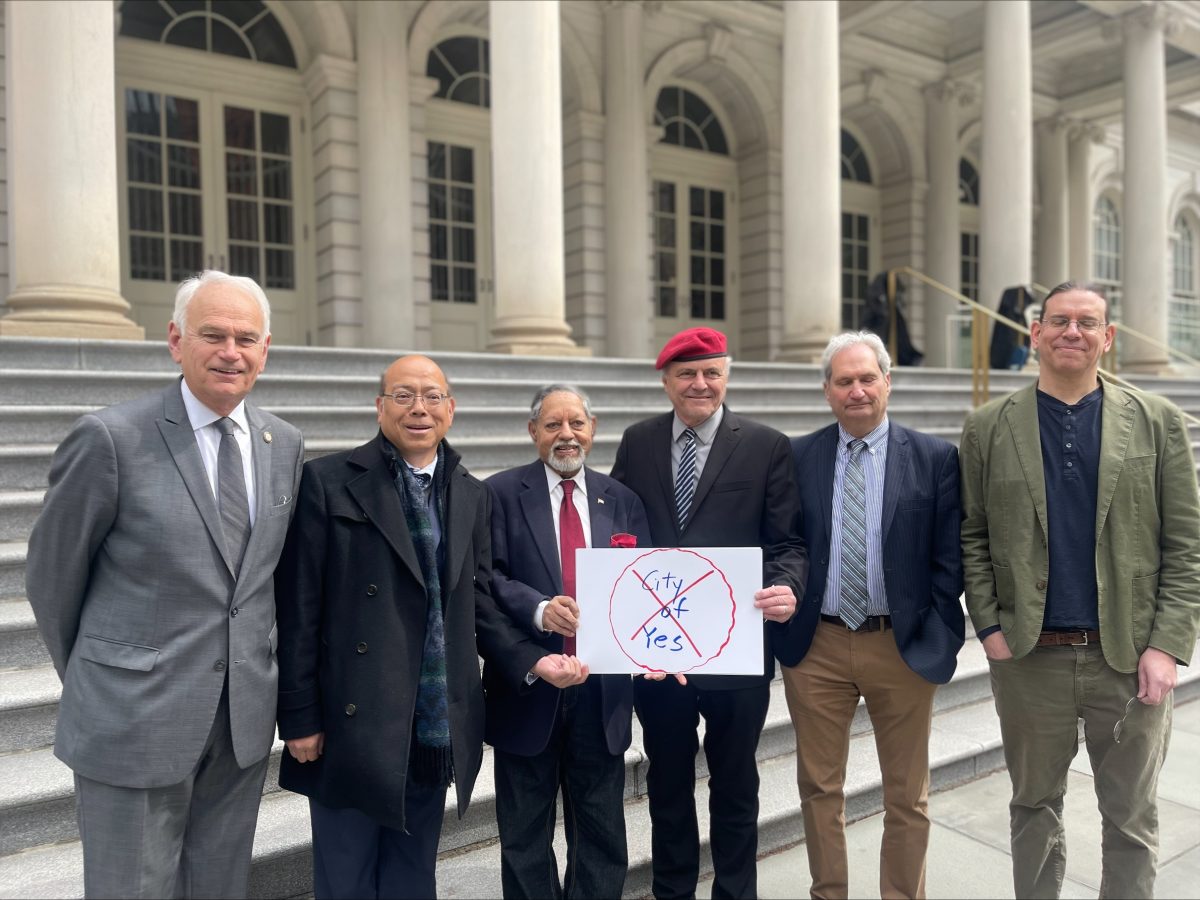Over 100 Officials Challenge “City of Yes” Zoning Reform

MOHAMED FARGHALY
mfarghaly@queensledger.com
In a bold move to challenge New York City’s ambitious zoning reform, the City Council’s Common Sense Caucus, joined by over 100 elected officials, civic organizations, and concerned residents, has filed a lawsuit to overturn the controversial “City of Yes” zoning overhaul. The lawsuit, filed last week in the New York Supreme Court in Richmond County, argues that the city violated fundamental environmental laws during the passage of the sweeping rezoning plan.
The lawsuit targets the city’s failure to comply with both the State Environmental Quality Review Act (SEQRA) and the City Environmental Quality Review (CEQR), specifically accusing the administration of neglecting necessary environmental assessments. According to the suit, the city’s adoption of the new zoning rules disregarded established procedures meant to ensure the protection of New Yorkers and their neighborhoods.
“Respondents violated their environmental obligations in at least three critical ways: first, by failing to take a ‘hard look’ at significant areas of environmental concern without providing a rational basis or reasoned elaboration for this failure; second, by segmenting City of Yes (‘Rezoning’) into three distinct stages as if each stage were independent, this violation of law served to avoid assessing the cumulative impacts of each phase of the Rezoning; and finally, Respondents overhauled New York City Zoning without proposing any mitigation or any rational explanation for failing to propose reasonable alternatives that offered mitigation,” the lawsuit alleges.
Opponents of the “City of Yes” have been vocal in their criticism of the plan, which they argue prioritizes development over the needs of local communities during the announcement at city hall on March 26.
Minority Leader Joann Ariola, who has been a leading voice in opposition, asserted that the rezoning effort was not about addressing the city’s housing crisis, but about making way for large-scale developers to push through projects with little regard for environmental or social consequences.
“The City of Yes was never really about solving an economic or housing ‘crisis’ – it was about clearing the decks for big development in our communities, then trying to deceive the public into believing it would have no negative environmental consequences or impact on our quality of life,” Ariola said. “The lawsuit we filed today makes it clear that not only did the city lie to us all, it broke the law in the process. It is the culmination of a diverse, citywide grassroots movement of residents who refuse to have their neighborhoods destroyed or their rights trampled.”
The “City of Yes” initiative, which aims to address the city’s housing shortage, was divided into three phases: Zoning for Carbon Neutrality (approved in December 2023), Zoning for Economic Opportunity (approved in June 2024), and Zoning for Housing Opportunity (approved in December 2024). Despite the plan’s goal to create more housing options, it faced strong opposition, especially the final phase, which was rejected by 38 of the city’s 59 community boards and nearly half of the New York City Council Members.
Each of the plan’s three phases was subject to its own Environmental Impact Statement (EIS), which controversially concluded that the expected influx of new development and density would have “no significant” negative effects on surrounding communities. Critics have disputed these findings, pointing out the strain on infrastructure, public services, and the environmental challenges faced by many already-overburdened neighborhoods.
“The Rezoning represented a wholesale departure from longstanding public policy that respects open space, air and light, stress on infrastructure and the neighborhood character of vast areas of New York City’s low-density communities,” the lawsuit concludes. “To have undertaken this Rezoning contrary to the requirements of basic environmental law must result in a nullification of Respondents’ unlawful behavior.”
The backlash has been broad and includes Republican mayoral candidate Curtis Sliwa, who praised the Common Sense Caucus and the civic groups for taking legal action against the Adams administration’s rezoning plan. Sliwa, a vocal critic of the “City of Yes,” warned that the zoning changes were a “top-down scheme” that ignored public input.

Courtesy Office of Council Member Robert Holden
“This lawsuit is a wake-up call to City Hall that New Yorkers will not be steamrolled,” said Sliwa. “The City of Yes is nothing more than a land grab for developers at the expense of the working and middle-class New Yorkers who built this city.”
Sliwa has also raised concerns about the potential risks posed by a specific aspect of the plan—its provision for lithium-ion battery storage facilities. These sites would be placed across the city, including residential and low-density areas, which Sliwa deems a safety hazard.
“New Yorkers should not have to live next to ticking time bombs,” Sliwa said. “The City of Yes put profit over public safety, and as mayor, I’ll fight to reverse that.”
City Council Member Robert Holden, another outspoken critic of the plan, has joined the lawsuit as a citizen plaintiff. Holden has called for the city to abandon the “reckless” rezoning initiative, emphasizing that local communities should not be undermined in favor of developers.
“I’m proud to be a citizen plaintiff alongside civic advocates Tony Nunziato, Alicia Vaichunas, and Phil Wong to say NO to the City of Yes,” Holden said. “This community rejects giving a blank check to developers—we will fight tooth and nail against this reckless plan.”
Council Member Robert Holden echoed Curtis Sliwa’s concerns, specifically criticizing the proposal to build a lithium-ion battery storage facility in Middle Village, directly across from PS/IS 128 and near an animal hospital and daycare centers. Holden called the plan “dangerous” and emphasized that such facilities do not belong in residential areas, vowing to fight the project “every step of the way.”
The “City of Yes for Housing Opportunity” initiative was designed to address New York City’s housing shortage by relaxing long-standing zoning rules. The plan aimed to provide more housing options across the city without overburdening any one neighborhood. The proposed rezoning changes are expected to enable the creation of 82,000 new homes over the next 15 years.
While proponents argue that the plan is necessary to tackle the city’s housing crisis and bring down costs, opponents remain steadfast in their belief that it could have far-reaching and negative consequences for local neighborhoods, their residents, and the city’s infrastructure.









